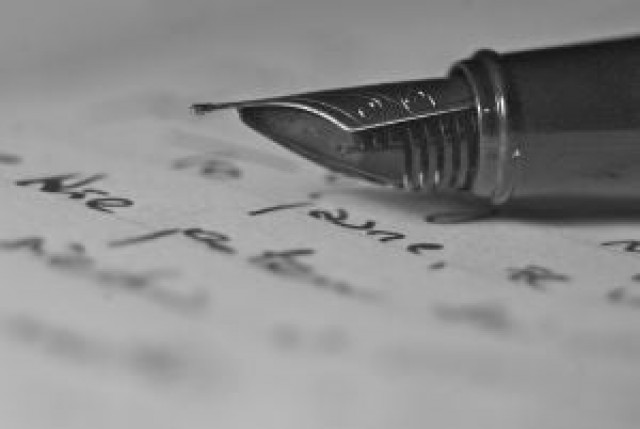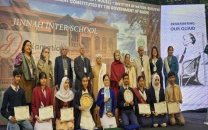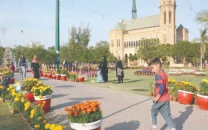The Digital Divan: Dr Sean Pue explores ways to preserve Urdu poetry
Michigan State varsity’s associate professor was speaking at Habib University on Wednesday.

The Michigan State University associate professor was speaking at a lecture on ‘Computational Approaches to Urdu Poetry’ organised by Habib University. STOCK PHOTO
The Michigan State University associate professor was speaking at a lecture on ‘Computational Approaches to Urdu Poetry’ organised by Habib University.
Introducing the speaker at the Tariq Rafi Lecture Theatre, Habib University School of Arts, Humanities and Social Sciences acting dean Dr Nauman Naqvi said Dr Pue is a torchbearer of the study of Urdu literary modernism and his projects will be the watershed for the preservation and rediscovery of our literary heritage.
Dr Pue, a literary historian and digital humanist, has worked on numerous projects pertaining to the computation of traditional and modern Urdu poetry through bio-informatic algorithms. The purpose, he said, is to make the computer artificially capable of transliterating, translating, interpreting and referencing Urdu poetry through the study of form.
“We transcribed 3,314 lines of Diwan-e-Ghalib for our project, Desertful of Roses,” he said. “Once the meter of the poetry is determined, it can be visualised in numerous ways.” Dr Pue argued that such tabulation is vital to map out the evolution of poetic forms and understand the politics of modernist Urdu poetry.
Quoting poet Tassaduq Hussain Khalid who said that all languages influence each other, Dr Pue argued that languages are material in nature. He said the inter-textuality of Urdu poetic forms attracted him towards computation projects when he studied Mirza Ghalib during his undergrad. “The aesthetic value of the works of Faiz Ahmed Faiz, Noon Meem Rashid and Meeraji is immense,” he said.
The associate professor said decoding Mir Taqi Mir’s meters is a challenge at par with the computation of Urdu free verse. “Mir’s Hindi meter is neither Persian nor Hindi. It is the invention of the Urdu wala [Urdu speakers],” he quoted litterateur Dr Shamsur Rehman Faruqi as saying.
Dr Pue also demonstrated his command over the local vernacular frequently throughout the session. The lecture culminated with him reciting the translation of Zamana Khuda Hai by Noon Meem Rashid.
Professor Asif Farrukhi, an instructor of Jehan-e-Urdu at Habib University, told The Express Tribune how many of his students find it painstaking to write Urdu and express themselves better in English.
Published in The Express Tribune, February 13th, 2015.


















COMMENTS
Comments are moderated and generally will be posted if they are on-topic and not abusive.
For more information, please see our Comments FAQ